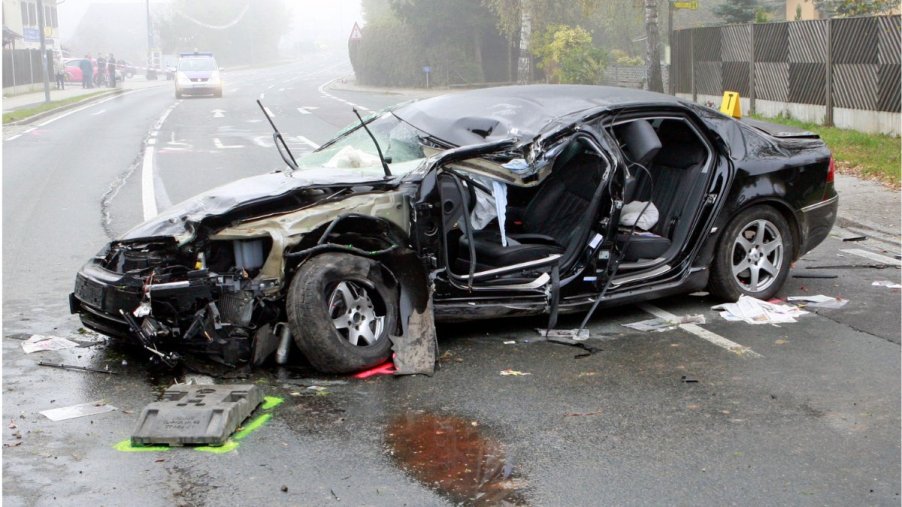
Woman Had 13 Car Crashes Before Turning 30: Gives up Driving Forever
A car accident can be traumatizing — and make someone apprehensive about getting behind the wheel again. While human beings have the capability to show much resilience in the face of adversity, there’s only so much that one can take. This is the case with a woman that had 13 car crashes before turning 30 years old. And after the 13th one, she gave up driving forever.
Jennifer Cairns was in her first car accident when she was 7 years old — and a severe one at 17

Jennifer Cairns, a 50-year-old woman from Belfast, Northern Ireland, was in her first car accident when she was seven years old. Her mother drove the vehicle. In an interview with Mirror, she explained, “I just remember coming home from my uncle’s house. He lived not too far away, about a 10 or 15-minute drive away, and I think the roads were probably just icy or slippery, and we crashed.”
The next one occurred when Cairns was 17 years old. She describes it as the worst of all the car crashes. It happened shortly after finding out that her best friend was killed in a separate accident with a semi-truck.
“Around two hours after her accident, I totaled my car less than a mile up the street from where we lived. I think I found out she was in the hospital, so I shouldn’t have been driving,” said Cairns. She continued, “I was driving and spilt out on the road and ended up going through a fence backward and crashing into a tree.” This accident required three surgeries to treat a fracture in her orbital socket from hitting her head.
Cairns continued driving after the first two crashes — but there were many more

Despite the severity of this crash, Cairns kept driving. She said, “I just thought, let’s jump back in, and nothing can touch me when I was in high school.” However, the car accidents continued.
The third one was a year later. She was a passenger in her friend’s car, which got totaled in the crash.
Several months later, Cairns bought a cheap vehicle for only $150. Unfortunately, the car was also cheap in quality. She didn’t realize that there was a hole in the floorboard, which led to an accident. The vehicle spun out, circling around on an icy road.
A year after that, the engine bay exploded in a different car. There were also three separate times Cairns’ vehicles hit a concrete barrier on a highway, as well as two instances of blown-out tires.
There was another car accident in which Cairns was a passenger in the vehicle of her boyfriend at the time. They were driving through an intersection, and a different car drove through a red light and hit them.
In a later crash, when driving from South Florida to Tallahassee to go to a friend’s wedding, a semi-truck tried to pass her vehicle on a two-lane road. The truck pushed her out of her lane and off the road, totaling her car. This accident was especially traumatic, given the memory of her best friend getting killed by a semi-truck collision when she was in high school.
For the 13th — and final one, another car rear-ended her at a traffic light.
Car accident-prone driver now has physical and psychological ailments — but has a positive outlook
Cairns might have kept driving. However, the health ailments that she experiences as a result of all of these car crashes proved to be too much. Along with physical complications, she has mental health ailments as well. This includes post-traumatic stress disorder (PTSD) and generalized anxiety disorder (GAD).
Since 2001 when in her late 20s, Cairns has not retaken her driving test because of her anxiety. She hasn’t driven a car since then — and possesses a provisional license.
However, despite her difficulties, Cairns has a positive outlook: “A lot of people would say, you’ve had such bad luck, but I have a lot of gratitude and think that I’m very lucky.” She continued, “The accidents caused me physical pain and affected my mental health, but so many of them could have been so much worse.”
Sometimes, Cairns thinks she could drive again and feel more confident behind the wheel. She would be in control — instead of other drivers. However, those thoughts are quickly squashed. Laughing, Cairns said, “I think I’ve pushed my luck enough with driving.”
How to get help: To connect with mental health resources near you, visit the National Alliance on Mental Illness (NAMI) website.




